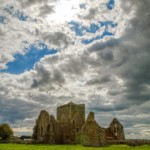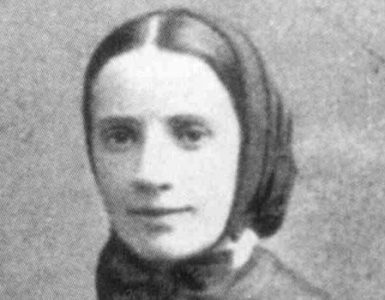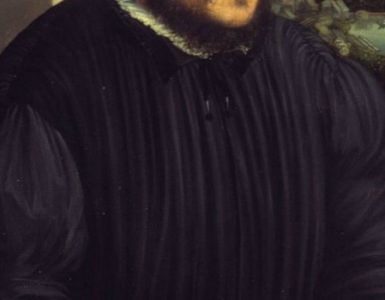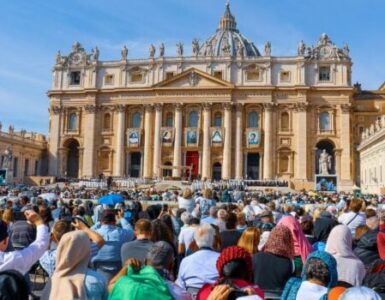The Facts of Life Series: The Reformation
The Reformation is one of history’s great misnomers. For it reformed almost nothing then and now. A more apt name for that era would be the Deformation, though that name is probably too benign, given the devastating effects of this movement and its many derivations that have so infected Western culture since 1517.
For this Sixteenth Century movement was truly a heretical assault on the nature of truth and its content. A deliberate denial and “deformation” of the dogma of the Faith. A distortion of God’s very nature and a rejection of His gift of reason. A revolt against the Church’s God given authority. An ecclesial error of immense effect leaving us with virtually no real unity despite Jesus’ commands and prayers to the contrary. A flagrant fragmentation of the Body of Christ with over thirty-six thousand Protestant denominations worldwide now. The evidence is clear. As Jesus said, “A tree is known by its fruit.” So too is the fruit of these “deforming” heresies.
As with most heresies, the evidence is explicit and undeniable. For these heresies were stated clearly and directly, as most heresies usually are. And, they are errors of the first order, primary errors about the first facts of the faith. For instance, one signature principle of the heretical Deformation is their paradigm for knowing, their principle for finding truth about faith and morals. These initial heretics and their followers down to our present day asserted the idea of sola sciptura (only Scripture), as the sole source of truth about the faith and its morals. And, this principle is still operative to this day.
On the contrary, Catholic knowledge of truth about faith and morals relies on three explicit sources. Scripture, the oral and written traditions of the Church from its founding and its magisterial authority conferred on it by Jesus through Peter are the three explicit sources, which operate by harmoniously. Implicitly, these sources are understood and integrated following the laws of reason.
But, if your theory of knowing the truth about faith and morals is not correct, as it was for the deformers then it is an absolute certainty and an unavoidable fact that the content of the truths about the faith and its morals will also be wrong. And, with a heretical paradigm for knowing, deviation from Catholic orthodoxy is certain and inevitable right from the very beginning.
Sola scriptura stresses the primacy of revelation when it comes to truth. Catholic orthodoxy clearly affirms revelation, but it also makes room for reason, what is known as natural theology. Our Catholic theory of knowing brings revealed theology and natural theology together as mutually affirming and complementary perspectives. The “deformers” then and now deny, disregard or downplay the role of reason and natural theology, though this may vary by degree based upon denominational preferences.
Within the deforming tradition, any case about Protestant faith and morals must be made using only Scripture, though this often results in appeals to selective biblical texts that affirm pre-existing conclusions, presuppositions and assumptions. It is called “proof texting.” This is one reason why there are so many different denominations, so many conflicting opinions about crucial doctrinal and moral truths, and even so many different translations of the Scriptures.
There is also a cataclysmic contradiction and an appalling absurdity to this assertion, conviction and convention about the sole source of truth resident in Scripture alone. The truth of the assertion that the Scriptures alone are the sole source of truth would have to be substantiated within the Scriptures themselves. Not only should it be stated clearly in the Scriptures, but such a crucial tenet all but requires multiple instances of such an assertion across the length of Scripture to be truly valid and viable as a paradigm for knowing, as a defining epistemology based only on the Scriptures.
Yet, nowhere does any and every book in the Scriptures ever say “only Scripture.” Quite the opposite is said. “All scripture is inspired by God and is useful for teaching, for refutation, for correction, and for training in righteousness” as the second book of Timothy reminds us. But, “all scripture” is not the same as “only scripture.” Nowhere does any book or verse ever say “only.” Quite the opposite.
In the New Testament there is a reference by Jude not only to oral sources, but specifically to the oral teachings of the apostles. “But you, beloved, remember the words spoken beforehand by the apostles of our Lord Jesus Christ,” leaves no doubt about the oral and written traditions of the Church, as well as of the Scriptures. Such is the cataclysmic contradiction of the deformers and their followers down to our present day.
But, the heresy of the deformers gets even deeper. For not only is the word “only” not present in Scripture in the capacity asserted by the deformers. But, even the Scriptures are not defined properly by them. For the Protestant Bibles are all shorter than the Catholic Bibles. The deformers of the Sixteenth Century removed seven books from the original Catholic Old Testament, known now as the apocrypha by Protestants, because they contained ideas with which they disagreed based on their own preconceived beliefs, beliefs not based in Scripture.
This is an appalling logical absurdity, as well as an epistemological contradiction of catastrophic scope. Who would think those who assert sola sciptura would believe in something which clearly isn’t in Scripture and would be the ones who changed the canon of Scripture they supposedly so revere? You can’t make this stuff up. For it is fatal to their case, by their own definitions.
Until the Deformation, the Holy Scriptures were the specific written and revelatory standard within the Catholic Church. Yet along comes a group of heretical deformers asserting a deep concern for the purity of the faith, who violate the apostolic traditions of Church authority, who jettison seven books from the Holy Scripture they so rapturously reverence, who irrationally situate in an abridged version of Scripture its role as the sole source of truth and then have the temerity and treachery to call themselves reformers and their movement the Reformation.
So, why would this solitary and singular reliance on revelation attain such prominence and popularity with the deformers? Why would their ideas exclude reason and philosophy, as well as the oral and written traditions of the Church and its apostolic legacy and authority? A major contributing factor begins with a fundamental difference between the Catholic Church then and now and the original deformers and their followers then and now.
The Catholic faith has always emphasized the “mind of God” as its primary theological position, whereas the deformers stressed the “will of God’ to the exclusion of all else. This is why the deformers stressed revelation as manifest in the abridged Scriptures to the exclusion of reason and philosophy. The prominence of the “mind of God” in the Catholic faith allowed for natural theology and revelation to be joined and integrated. The Church could use reason to prove and demonstrate crucial content about God using our God-given rational abilities. And, the Church could receive and understand, expand and apply the revelatory content of the unabridged Scriptures.
This emphasis on the “mind of God” is evident across Catholic history and in the prominence of its many theologians and apologists. Augustine, Aquinas and all its other prominent thinkers began with the mind of God. They also recognized our God given human capacity to think, to reason, to prove the facts about God, His nature, His plan. Also, by stressing the mind of God as the primary theological premise, human beings by properly using their intellectual powers can know a great deal about God and by doing so can actually encounter Him.
This emphasis on the mind of God also affects how priestly preparation is structured. Most priests usually complete philosophical training first before engaging in theological study. Philosophical training involves what is known as “natural theology,” the study of God using our rational, our critical and our logical capacities. Notice there is a blending of reason and revelation in the Catholic course of study. In contrast, in most Protestant seminaries there is a rigorous and relentless emphases on the proper analysis and interpretations of the abridged Scriptures and little, if any, emphasis on philosophy except perhaps implicitly in an apologetics or world religions course.
When the deformers mounted their assault on the Catholic faith, the Catholic Church and on Christendom, they were not trying to reform the Church. They were far too intelligent and educated for such a benign and altruistic motive. They knew full well what their proposals and program would do, perhaps not in detail, but certainly in general. Yet, they did it anyway. And, our world has not been the same since.
Surely the Church needed reform then and now. But, the reform it needs is individual moral reform of its priests and its hierarchy, who deviate from the moral and theological truths of the faith. Just as surely, it needs reform of its leadership and administrative behavior which focuses on politics, public relations and finances at the expense of truth and moral responsibility and rectitude.
But the reform of the Reformation was anything but reform. It was and is heresy of the first order. For that is where the heresy begins. The deformers began their heretical assault with an erroneous assertion about how truth can be known. For when the way truth is known is in error, heresy is inevitable and error abounds. For if a faulty paradigm of how truth can be known is adopted, it pollutes everything. Error expands exponentially. And, the reach of heresy is without practical limits. And, that is what history shows us.
This is one major reason why tolerance, not truth, is our primary principle for assessing competing philosophies and values. This why reason has been reduced to semantics and rhetoric rather than retaining its validity as the primary source of truth about life and living. This is why religion is now a mere matter of opinion and preference, rather than a matter of fact. And, that is why the Deformation is the most accurate and true name for this historical era, an era of flagrant heresy and arrogant pride on the part of its deformers, even in our present day.
✠
This article is the fifteenth part in an extended series on the “The Facts of Life” by F. X. Cronin. You can start with part one by clicking here and see previous entries by clicking here.
We also recommend Mr. Cronin’s latest book, The World According to God: The Whole Truth About Life and Living. It is available from your favorite bookstore and through Sophia Institute Press.
Photo by Mick Haupt on Unsplash













